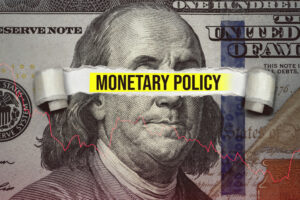Mises: A Short Essay on Sound Monetary Policy
The comments below are an edited and abridged synopsis of an article by George Ford Smith
If money consists of a commodity, such as gold, the principles of monetary policy are simple: There aren’t any. The commodity takes care of itself. If we have sound money, we don’t need the Fed, or Congress. We just need sound money.

Economist Nouriel Roubini once asked, if you are on a gold standard, or modified gold standard, what do you do in the event of a bank run—if you don’t have enough gold to fully back the currency?
Translated: What happens if the banks have created bogus IOUs for their depositors’ gold? Suggestion: Have them indicted for fraud. Gold doesn’t back anything. It is the money. The banks issue IOUs for the money. When they issue more IOUs than they have gold on hand, they’re cheating.
Roubini also said that a “gold standard limits the flexibility and range of actions that central banks can take.” He thinks it’s a shortcoming, but that alone should recommend it.
At the start of WWI, governments went off the gold standard so they could fight the bloodiest war in history. Gold, since it can’t be created on demand, would have severely limited the flexibility and range of actions governments could take.
Roubini has said that the world is a slow-motion train wreck; the gold standard, however, avoids train wrecks by staying on track.
A gold standard doesn’t need Roubini. It doesn’t need the Fed, Congress, the World Bank, the IMF, the WEF or the FOMC. It just needs to be left alone.
What the enemies of the gold standard spurn as its main vice is the same thing that, in the eyes of the advocates of the gold standard, is its main virtue: Its incompatibility with a policy of credit expansion. The nucleus of all the effusions of the anti-gold authors and politicians is the expansionist fallacy.
Credit expansion—inflation—is indispensable to a growing government. If wealth could be created out of scraps of paper or their digital equivalent, world poverty would be a thing of the past.
Remember, commodity money takes care of itself—and us too, if we let it.
